The Mercury franchise is an interesting take on a tried-and-true concept. Taking its lead from classics such as Marble Madness and the more recent Super Monkey Ball, Mercury Hg is the newest instalment from Ignition Entertainment’s viscous blob sliding simulator. Read on and find out the good and the bad, about this quirky little title.
HOT
Control, Gameplay and Variety
A game, in the strictest sense of the word, can only be as good as how it controls and Mercury Hg gets a solid pass here. The players goal is to slide their blob of mercury, from the starting point on the board to the goal, via a few obstacles that will put their blob-sliding skills to the test. However, the twin-stick control scheme lets players interact with the entire board rather than the blob.
The mercury moves nicely and it’ll only be a couple of levels before players get used to its weight. It won’t be long before you’re flicking your blob down wall-less, winding bridges and to your goal with an ease which is cathartic while this sort of simplicity lasts. However, quickly the ‘puzzle’ part of the game comes out and levels become slightly more than a test of your dexterity.
I say ‘slightly more’ here because the puzzles are never the kind of conundrums where you will have to stare at the screen for more than thirty seconds. Most of the mental tasks in the game revolve around colouring the blob of mercury with various spray paint machines: then moving appropriately coloured mercury onto corresponding panels to activate bridges or moving platforms. The best use of this mechanic comes in mixing up your mercury. Being a runny liquid and all, your blob is prone to splitting up into separate entities if dragged along a corner. When this happens you’ll have to use every bit of the board to your advantage if you want to finish with maximum mercury.
Splitter blocks around the level allow you to purposefully split your mercury. This in tandem with the colouring mechanic allows players to mix standard colours back into one blob for new hues; which will help players finish some of the trickiest levels. All of these different mechanics serve to ensure that the levels retain variety. Some will focus on winding passages demanding tight controls while other will require a more thoughtful approach.
Presentation and Music
Levels take place floating in some beautiful, digital void with music equalisers jumping and pumping to the music. Colours are bright but warm and it’s all tied together by a user-interface that has you selecting levels and modes from the elements of the periodic table, which I thought was a nice touch. Overall all the levels have the feel of some pleasant dream set in a science lab and the affect is a huge positive for the game.
Mercury Hg comes with a dozen or so tracks each of which is chosen randomly at the beginning of each level. Everything within the level, from your own blob of metal, to the humming blocks that surround the course, to the very background of the course all pulse and move to the beat of whatever track is playing. The tracks included in the game range from demure, relaxing tunes to some more bass-pounding, feet-tapping affairs. The individual tracks all suit the game, though the fact that you can be playing to something gentle only to retry the level and be faced with something the complete opposite end of the spectrum can raise the odd eyebrow in the name of consistency.
It should be mentioned, also, that the game allows you to play your own music via the Xbox dashboard, meaning you can compose a playlist of your own liking to suit your own pace and still take advantage of the how the levels react to the music. It’s a nice touch and one that I’m sure many will like to take advantage of.
Content
Mercury Hg is a game that costs only 400 Microsoft points and while I’d rather take the game for what it is and leave the question of price out of it, it’s still worth mentioning that the game offers an awful lot, considering how much you pay. The main focus in the game is the discovery mode where players must unlock all the elements of the periodic table in ascending difficulty. After those sixty levels though, there’s still a lot to do.
This is essentially a game for those who live for leaderboards. There’s times, scores and ghosts to keep you occupied and the usual friends list and wordwide leaderboards are there. Those who relish a long-term challenge, you’ll get a decent amount of mileage out of Mercury Hg.
In addition to perfecting your Discovery Mode runs, you’ll also find a sizeable portion of challenge courses and bonus levels which shake up the regular formulae by demanding more specific completion requirements. There’s a lot to do in Mercury Hg, especially if you relish the thought of leaderboards, high scores and top times. The low price point for the game means that it’s even easier to consider investing in what the game has to offer.
NOT
Stunted Flow
I found it irksome that the music will skip to the next track every time you need to restart the level. You barely have time to enjoy any of the tracks or the ambience they create, because too often you’ll have needed to restart a few times to get the nuances of the levels memorised. The music fading out and coming back in with another track only serves to pronounce the wait between retries and this means much of the slick flow between the levels gets cut to ribbons.
One of the few bugs doesn’t help with this lack of flow either. Occasionally I would load up a level, only for it to be running at a fraction of the regular speed, rendering it pretty tedious. Restarting the level manually was required to fix the bug and while this was never a huge deal, it did mean that the otherwise bite-sized levels I was enjoying ploughing through ended up a little harder to swallow.
Lack of Ambition
Mercury Hg does some interesting things with its concept – particularly the colour mixing mechanic – but not enough. Some levels make fleeting use of beacons that attract or repel your blob, or tiles that rake your mercury to bits, but often the game is happy to play it safe and stick to the simpler gameplay aspects. What is here is done well but I couldn’t help feeling regardless that Ignition could have really gone to town with the Mercury concept and given us some truly exciting ideas, that would add even more variety. While not a damning criticism by any means, the developer’s lack of ambition is one of the only things keeping this good game from being great.
Verdict
Mercury Hg is a very confident offering in the genre. Its controls are solid and serviceable, meaning you almost always feel in control of the mercury. The presentation is immaculate, with music-responsive levels in an attractive science-lab framework and the replay value for the high-score obsessed is great. Mercury Hg’s only failings are its reluctance to reach beyond the functional out into the really crazy in terms of level design. Every level left me feeling satisfied but very seldom did I feel excited. Don’t get me wrong here – the game looks and sounds great, plays fine and has a respectable amount of replayability, at a very enticing price point, but it’s reluctance to evolve past its basic premise means that it eschews greatness at the very last turn.
![]()
[Editor’s Note: Mercury Hg was reviewed on the Xbox 360. The game was provided to us by the publisher for review purposes.]

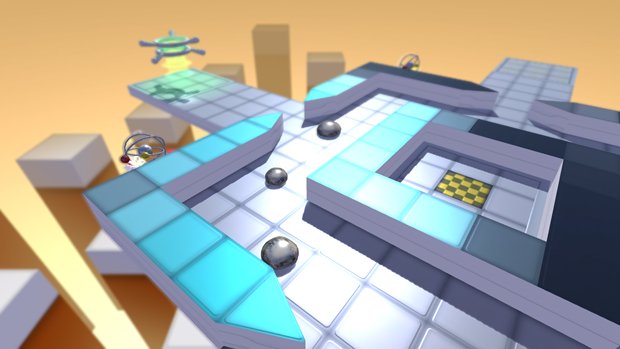
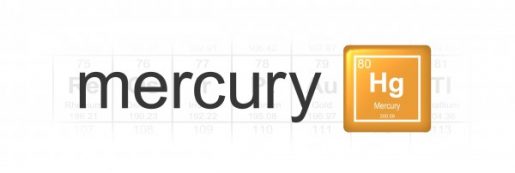
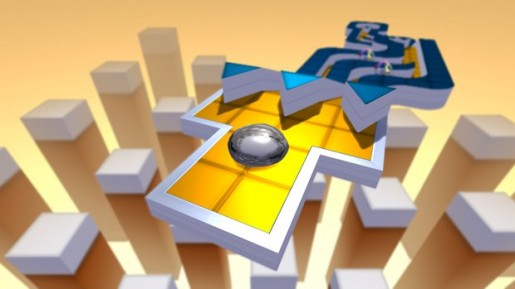
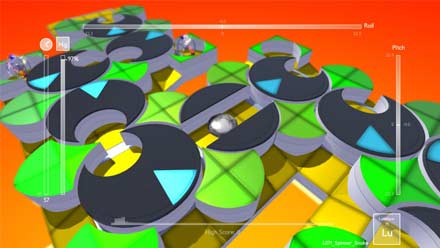
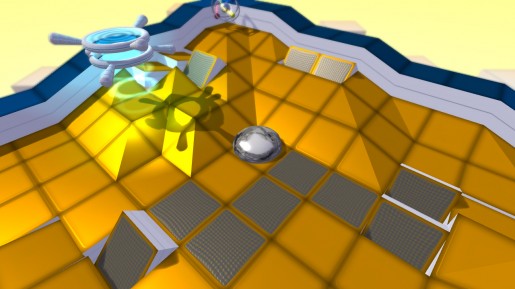
I wonder if it was the publishers lack of ambition and not the developer?